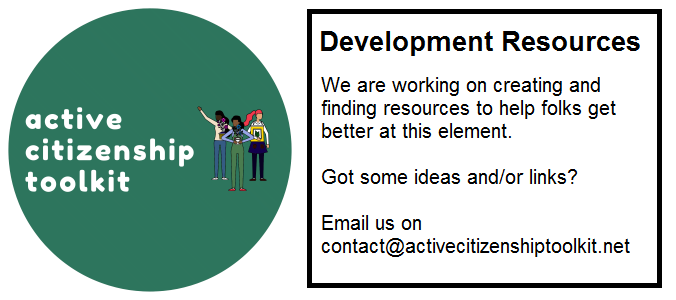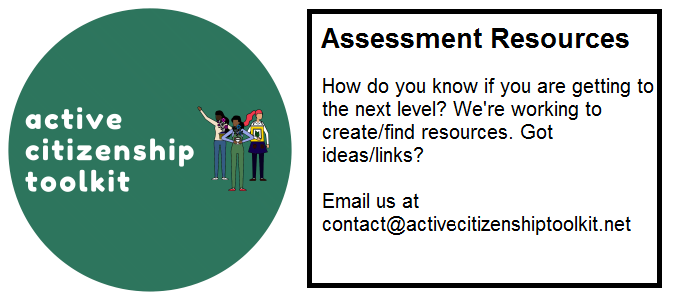Element Descriptor
Problems are all around us, why else would we be here? Solutions to problems are rarely straightforward or readily available. Problem solving is the skill of considering many different ways to resolve something, the “perfect solution” vs what is workable under current constraints, as well as thinking of non-obvious or mainstream ways to address a given situation. Without these skills, groups will continue to be stymied by the same old issues and make no progress.
Level descriptors
| Novice | Practitioner | Expert | Ninja |
|---|---|---|---|
| You can recognise problems (even if they don’t directly affect you) and formulate ‘simple’ (ie mono-dimensional) problem statements, consider possible solutions, create implementation plans for such solutions, work with others to execute, albeit under relatively little time or other pressure | Under moderate time or other pressures, you can recognise and articulate problems that may have multiple dimensions and / or knock on implications for other group activities. Alone or with others, you can consider and propose possible solutions and mitigations (recognising that there may be no perfect answer and that compromise will be needed) and develop plans to implement solution / mitigation actions | Even under severe pressure, and with insufficient information, you are able to define a problem in a way that clarifies the thinking of your team / other groups, facilitate (not facipulate*) the creation of solution and mitigation actions, considering the many complex (and uncertain) tradeoffs along the way. | No problem, even vaguely defined, heterogeneous and multidimensional, counterintuitive and technically challenging, phases you, even under extreme personal and time pressure. Your multiple advanced techniques for divining potential solutions, taking all potential implications into account, produce plans that are clearly understood by all those involved, and whilst there will always be tradeoffs and compromises, these are clearly communicated and understood. |
Element Overview Essay
This is a draft. If something doesn’t make sense, or you see typos, or if you have further ideas, please email us on contact@activecitizenshiptoolkit.net
The causes of people not being good at this is you’re not taught it in school and people lack, understandably, confidence. And they feel that they may not have authority to try and solve a problem. When I say people, obviously, I don’t mean all people, some people are really good at this.
The consequences are that problems don’t get solved, but more importantly, jobs that were delegated to someone On the assumption that a problem was being delegated as opposed to a task, don’t get done. It creates bad morale means projects stutter, or fall over altogether, it can mean that.
The solutions are tricky.
But number one is be very clear when you’re delegating a task, or you delegate very delegating an activity. Are you delegating a task? Or are you delegating a problem? So, a simple example, if in a meeting, it’s agreed that you’re going to have a well, let’s say it’s post COVID. If such a thing exists, that you’re going to have a public meeting On the first of May, and you give the task of finding a venue or finding out if rather, the Friends Meeting House is booked for that day to someone and they do it. They find out the venue is already booked and we can’t have it. If they come back a week or two weeks later and say, well, “I’ve done the task.” Other people are gonna be like, “Yeah, but you didn’t solve the problem.“
So when you’re delegating it’s not find out if x is available, but find a suitable venue. And if all of the usual suspect venues are not available, come back to us and we’ll start to think laterally about other venues or other dates.
More broadly, problem solving is about trying to match the goals that you want to achieve with the resources that you either do have or might plausibly have, and to remove roadblocks between them and achieving your goal,
Development Resources

Assessment Resources

